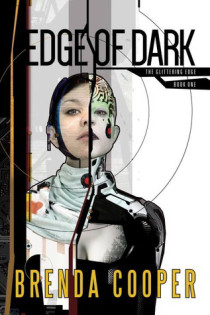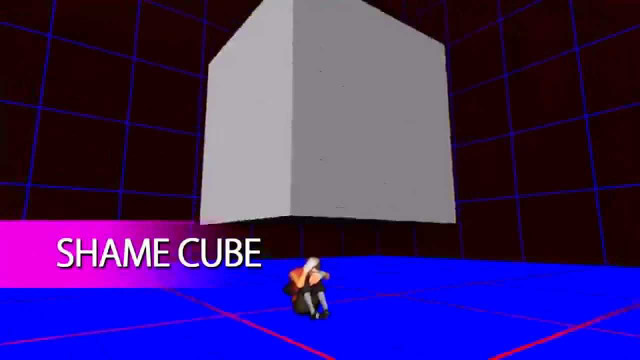This review of Edge of Dark by Brenda Cooper was written way back in 2015 for the British Science Fiction Association‘s magazine, Vector.
Pyr, 2015, Paperback, 350pp, £13.99, ISBN 9781633880504
 Sweeping the dust under the rug is only a temporary solution when tidying your home; doing the same with any cybernetic super-intelligences in your solar system is at least as bad an idea. But that’s what Brenda Cooper’s biological humans have done in her latest novel Edge Of Dark, and now the cybernetic super-intelligences are coming home to roost.
Sweeping the dust under the rug is only a temporary solution when tidying your home; doing the same with any cybernetic super-intelligences in your solar system is at least as bad an idea. But that’s what Brenda Cooper’s biological humans have done in her latest novel Edge Of Dark, and now the cybernetic super-intelligences are coming home to roost.
Having been banished to the very edge of the planetary system many years ago, the post-human Next have spent their time growing stronger, faster, smarter and just better.
The humans at the centre of the system seem mostly to have spent their time shopping and bickering – although some noble souls, such as Charlie, a central character and Ranger on the system’s remaining habitable world, Lym, have been working on restoring the wrecked ecosystem. He is thrown together with poor-little-rich-girl Nona, who is visiting Lym for the first time to scatter her father’s ashes.
While she’s there the Next begin to flex their new-found muscles by stealing an entire space station near the outskirts of the system. This acts as a wake-up call to all the human communities who at last realise that banishing all their cybernetic super-intelligences was a stupid idea, because those same cybernetic super-intelligences are now coming back to renegotiate all the current living arrangements.
While humanity panics, Charlie and Nona head out to contact the Next, and hopefully discover what happened to Nona’s oldest friend, an inhabitant of the stolen space station.
To help them understand and negotiate with the humans the Next then “upgrade” some of their prisoners into cybernetic super-organisms like themselves. There’s a lot of wailing and gnashing of teeth about this when the humans involved discover what has been done to them: basically, they have to die before their biological bodies can be upgraded.
But the newly cyborged humans are vital to the Next, struggling to recall what it was like being human, and to the humans, struggling to understand what the Next are, what they want and how to deal with them…
Set in a mature, colonised system where interplanetary travel is a commonplace but interstellar travel is very rare, Edge Of Dark deals with a divided humanity struggling to come to terms with itself.
Split between a relatively small number of humans living traditional planet-bound lives, many millions more living determinedly non-traditional lives on thousands of independent space colonies, and the once-human Next who are not alive at all by some measures, all of these different groups must somehow come to an understanding if they are to inhabit the same system.
Cooper does a marvellous job presenting the pros and cons of becoming a cybernetic super-organism. She also presents the systems humans rather well, and that’s where Edge Of Dark excels: in presenting all the system’s humans in a sympathetic light.
None of them are perfect, no one has a perfect solution to the problems they all face, but none are obvious villains, either. They’re just people, making the same mistakes people have always made and attempting to muddle through as best they can.
There are no action heroes here – the tense and frightening capture of a space station is viewed from both inside and out, with watchers from both viewpoints equally helpless. But there is intrigue and tension aplenty, well managed from an array of unique and likeable characters.
This isn’t gung-ho fightin’ SF – military solutions barely come into the equation – instead Edge Of Dark is about subdued realpolitik and characters attempts to avoid conflict. There’s a dark, cold edge to this tale however that’s far scarier – and at times just as exhilarating – as going in all guns blazing, especially when written and managed as subtly as here.
There is one confusing aspect: all the unstated backstory.
I assumed it was meant to be semi-legendary, like Battlestar Galactica, the lost history of a solar system settled in the distant past (and attacked by gleaming cyborgs…!) but later discovered previous books set in this universe.
Perhaps a timeline could be included in the next book for all us late arrivals…?
Advertisements Share this:




